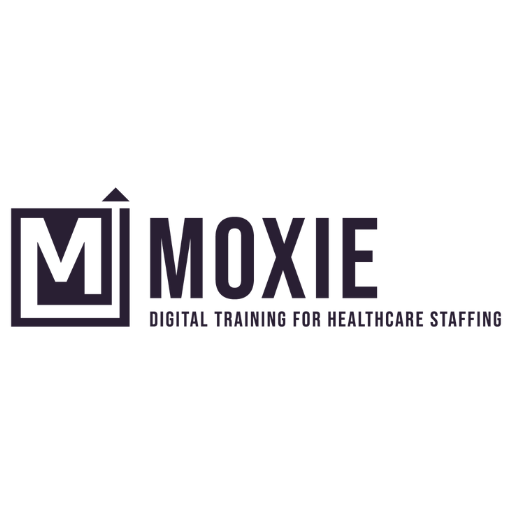By: Adam Gomez
Recruiting is hard. It’s not for everyone. Even when someone has the necessary skills to succeed, for some reason, they just don’t.
We’ve all seen it happen. A new recruiter starts the job full of hope and promise. Day by day the promise they once held for the future fades and hope turns to despair. Managers desperately “try everything” to turn things around. And in the blink of an eye they’re gone. Whether they leave the company voluntarily or involuntarily is unimportant.
In the end, the agency and the recruiter both lose.
When failure occurs, take a moment to assess and evaluate any contributing factors which led up to it. Be honest in your assessment and willing to learn from any missteps. After all, the better you understand why these new recruiters fail, the more likely you will be to set your future hires up for success.
Here’s a list of ten reasons new recruiters in travel healthcare staffing fail:
1) Inadequate training on sourcing and prospecting strategies. Recruiters who are new to the industry receive training about the company’s benefits and CRM/ATS. But, often training doesn’t address the most prominent task they will perform, finding healthcare professionals who want to travel!
2) Wrong intent. No, I’m not saying new recruiters have ill-intentions and therefore fail. I’m referring to new recruiters who are focused only on hitting numbers rather than moving towards a goal. Metrics, such as number of outbound calls etc. are extremely important so long as a recruiter understands they are not the goal. The intent of the recruiter should always be on connecting and engaging with prospects. Leaders and managers often perpetuate this problem unwittingly.
3) Poor or inadequate skill in building relationships. The typical contract is 13 weeks. If a new recruiter is acutely focused on the transaction, instead of the relationship with the healthcare professional, they are likely to remain in a constant state of rebuilding. They will spend a substantial amount of their time replacing travelers due to constant turnover to simply maintain headcount numbers, rather than grow their desk.
4) Unrealistic expectations. It takes time to grow your desk as a new recruiter in this space. Sure, some grow extremely quickly. But the vast majority of new recruiters need a few months to build a candidate pipeline. If a new recruiter expects to see success in the first few weeks, and instead experiences only rejection, it can be demoralizing. Setting realistic expectations at the beginning can be empowering for new recruiters and help them as they overcome the many obstacles they will face early on.
5) Poor time management. Time can never be recovered once it’s used. New recruiters often spend too much time chasing prospects who are unlikely to ever take a position with them. Understanding who they should spend time on and how much time can take…well, time. Unfortunately, some new recruiters will never have enough time to learn how to manage it effectively.
6) Lack of organization. Unsurprisingly a lack of organization can be detrimental to a career as a recruiter! Yet, it seems to be one of the most common reasons for early failure amongst new recruiters. Although many CRM’s aim to solve this problem for recruiters there still exists a great deal of difficulty for some recruiters given the complexity of the position. And what works for one recruiter may not work for another. Often, new recruiters are apprehensive about asking for help when it comes to organization. Instead, the issue surfaces when it is too late, and they’ve found themselves on the chopping block.
7) Poor cultural fit. This is how we describe situations where new employees just don’t “fit in” with the larger group. In recruiting, often times this is tied to one’s beliefs and values not being fully aligned with the rest of the team. For example, a recruiter who is overly aggressive and pushy with travelers will not likely fit in well at an agency that prides itself on creating an exceptional customer experience!
8) Poor working environment. You want to know the fastest way to watch great talent walk out your door. Put them in a group of negative nellies. Sometimes it’s not ‘them’ but instead, ‘you’. New recruiters who are exposed to overwhelmingly negative commentary in their day to day interactions with co-workers are likely to ‘hit the door running’ when another opportunity presents itself.
9) Incapable of handling rejection. No. New recruiters should never ‘like’ rejection. But, they’ve got to be capable of managing their thoughts and emotions around it. Rejection is a part of recruiting. Recruiters ‘fail’ far more often than they succeed. Persistence in the face of adversity is key to surviving the first several weeks as a new recruiter. If a new recruiter has underdeveloped or ineffective coping strategies for dealing with failure they are sure to succumb to the challenges they will face early in their career.
10) Lack of support/leadership. Recruiting is hard. But it’s even harder when there is a lack of support available to a new recruiter. Assigning a mentor to work with a new recruiter can be advantageous so long as the mentor isn’t a negative nellie! This is especially effective during the first 6 months of employment.
There are many reasons new recruiters fail in the travel healthcare staffing industry. Understanding why new recruiters fail is important to every company. It sheds light on those qualities and attributes your hiring process should seek to attract in applicants. It also informs your decision on the types of interview questions which should be a part of your agency’s interview strategy.
We’d like to hear your thoughts on this topic! What are some reasons you’ve seen for new recruiters failing?





